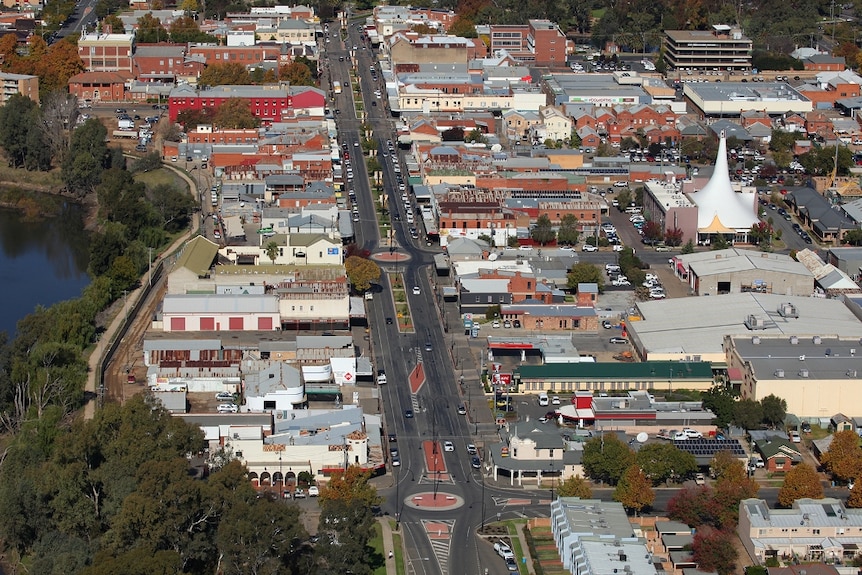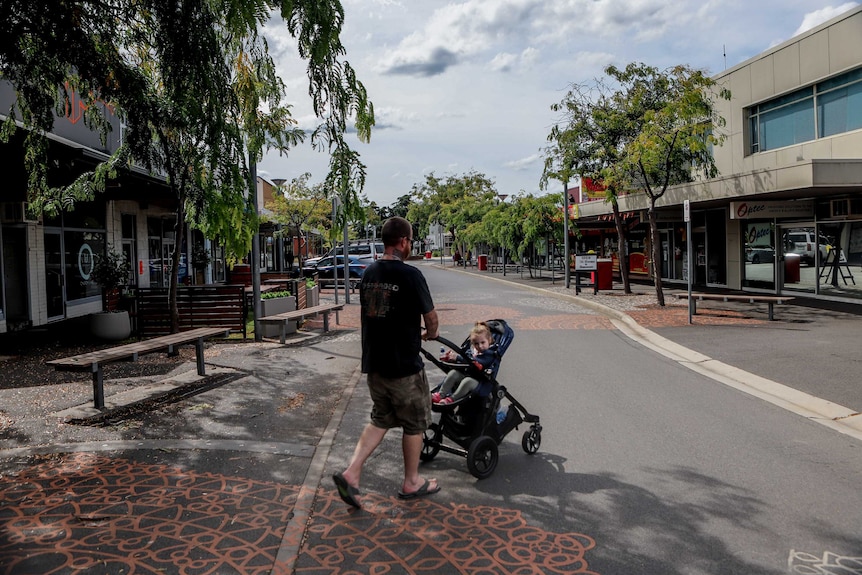Extract from ABC News
By Jeremy Story Carter, National Regional Reporting Team
Sky News has cemented its future in regional Australia's media landscape with the announcement of a new multi-year broadcasting deal.
Key points:
- The future of Sky News in regional Australia has been confirmed
- A deal to broadcast a dedicated 24-hour Sky News Regional channel has been struck with Southern Cross Austereo
- Former PM Kevin Rudd says Sky News is attempting to replicate the approach of Fox News
A dedicated 24-hour Sky News Regional channel will become available on free-to-air television to an estimated 7 million rural and regional Australians in August across the Southern Cross Austereo network.
It will carry the metropolitan-based channel's daily news coverage, as well as its evening line-up of conservative commentators like Alan Jones, Andrew Bolt, Chris Kenny, Paul Murray and Tony Abbott's former chief of staff, Peta Credlin.
The announcement has been welcomed by some in regional communities, but former prime minister Kevin Rudd believes Sky News' continued presence in the regions will influence political debates and even local elections in the coming decade.
Mr Rudd, who has long campaigned against Rupert Murdoch's News Corp empire, said Sky News was attempting to emulate the success of US cable broadcasting behemoth Fox News in rural and regional communities.
"What worries me is the way in which we have regional Australia, which is increasingly news-starved [with] the disappearance of local print, and then the emergence of this regional television network, which infers that its content is somehow credible news, when it's basically just Fox News, American-style, on speed," the former Labor leader told the ABC.
"What I fear is it will entirely skew local debates about local concerns and local communities in a particularly mad direction, as opposed to the normal cut and thrust of news coverage."
Sky News has broadcast in regional areas since 2018 on the WIN network, where unlike in metropolitan markets, it has been available free-to-air.
That broadcast agreement expires in the coming weeks, but the newly struck deal will see the Sky News Regional channel broadcast in Southern Cross Austereo's regional markets. Sky will also continue to be available on WIN in Northern NSW, Griffith and South Australia.
"We have established a strong and dedicated free-to-air audience in regional Australia," Paul Whittaker, Sky News Australia's chief executive, said in a statement.
"As we celebrate 25 years of broadcast in Australia, we look forward to introducing new television audiences to our unrivalled news coverage, together with informed analysis and context from our leading journalists and commentators."
Mayor who "copped a whack" from Sky welcomes channel
Townsville, Wollongong, Ballarat and Wagga Wagga were among the regional markets highlighted by Sky News in its announcement.
Wagga Wagga Mayor Greg Conkey welcomed the news and said the channel would be good for his regional NSW city, which is also serviced by a local newspaper, regional TV networks and a local ABC bureau.
"We are a diverse community and we have a whole range of viewpoints concerning a whole range of issues in this city," Mr Conkey said.
"If people don't particularly like Sky News, for whatever reason, they have that choice of getting the news from a different source."
Mr Conkey admitted he had once "copped a whack" from hosts on Sky News, after he purchased an electric pool car for the city of Wagga Wagga (Chris Kenny from The Kenny Report described the purchase as "expensive virtue-signalling").
"They have a different viewpoint to mine concerning the future of electric vehicles," Mr Conkey, who was elected as an independent and has never been a member of a political party, said.
"I think they've got a different viewpoint about climate change to mine as well."
But
he pointed to a recent live broadcast from Wagga Wagga by Sky News host
Paul Murray as an example of the channel's benefit to regional
Australians.
Denis Muller from the University of Melbourne's Centre for Advancing Journalism is less convinced about the potential news value of Sky News to regional communities.
"Regional newspapers, who tend to play the game pretty straight, are disappearing and shrinking and this highly polemical, politicised style of media is filling the vacuum," Mr Muller said.
"If people are looking for genuine regional news, they won't be finding it on this service. It will be the metropolitan material on regional channels."
Kevin Rudd, who earlier this year told a parliamentary inquiry into media diversity that he was "fearful" of News Corp while serving as prime minister, said the Sky News brand of political commentary served to exacerbate community polarisation.
"If we follow the American path on this, for whichever side of politics — left, centre or right — it progressively makes this country ungovernable, if you begin to produce such radical polarisations in one direction or another," he said.
Mr Rudd's petition for a royal commission into News Corp last year garnered over half a million signatures.
"It will push the traditional centre-right parties of Australia to the far right through its impact in local communities generally. So if you are not seen as complying with the worldview of Alan Jones on Sky after dark... then you have a big target written on your forehead, in terms of being preselected, or sustaining your preselection among the conservative parties. Members of the Liberal Party and members of the National Party have told me this."
Potential to 'sharpen debate' about climate change
Denis Muller acknowledges that culturally, Australians are unlikely to become as animated by the sorts of debates that have influenced recent US politics, but he believes there is still a clear avenue for Sky News Regional to influence local political debate.
"It's true that the Australian character is rather more phlegmatic than the American and less excitable, but I don't think we should be complacent about it," he said.
"If you look at the areas where its free-to-air signal will be carried, particularly in Queensland — Cairns and Townsville and the Sunshine Coast — where, for example, the issue of climate change is highly salient, I think it certainly has the potential to sharpen the concerns about climate change and particularly sharpen the denialist message in places where it's already a difficult sell."
Southern Cross Austereo CEO Grant Blackley said the introduction of the Sky News Regional channel was evidence of its commitment to regional Australia.
"We are delighted to be able to ensure regional Australians will have access to the high calibre and diverse programming this new partnership with Sky News delivers."
Sky's political influence continues to grow
Once confined to the narrow viewership of subscription television, Sky News has in recent years extended its reach and influence through its Facebook and YouTube accounts, both of which have over a million followers.
This week, federal Greens senator Mehreen Faruqi suggested there was a link between a motion put forward by One Nation leader Pauline Hanson and a favoured topic of Sky News' evening hosts.
The motion to ban "critical race theory"' — a topic that has become an incendiary culture war issue in the US — from the Australian national curriculum was passed in the Senate on Monday night.
Before it was a nightly talking point on Sky News, segments around "critical race theory" saturated conservative broadcasts in the US, with left-leaning non-profit Media Matters for America reporting the term had been mentioned over 1,300 times on Fox News in under four months.
Having
lived in America for six years, Mr Rudd said the introduction of a
dedicated Sky News Regional channel could precipitate a similar media
climate to that of the US.
"I've observed the trajectory. Six years ago, America wasn't quite like that. Certainly a decade ago, America wasn't like that. You can feel and sense and experience the palpable imprint of this form of news radicalisation, and this conflation of news with opinion that Murdoch's Fox empire represents," said Mr Rudd, who is president and CEO of Asia Society and now lives on the Sunshine Coast.
"There is always a predisposition in this country for people to find a huge bucket of sand and bury their heads in it, because it's all too hard. But the bottom line is this: I worry about the trend line over time, and I believe there are signs of the times right now that something's happening beneath our feet."
Sky News did not respond specifically to the ABC's questions surrounding Mr Rudd's concerns.
In Wagga Wagga, Mayor Greg Conkey resents the idea that his community can't choose their own media sources for themselves.
"We live in a free community and people have the freedom to turn off [any] channel. I think a lot of people who live in metropolitan areas have got no idea of the lifestyle of those living in rural and regional centres," he said.
"I really feel sorry for people living in those cities. They should think about a sea change or coming out to the country."
No comments:
Post a Comment